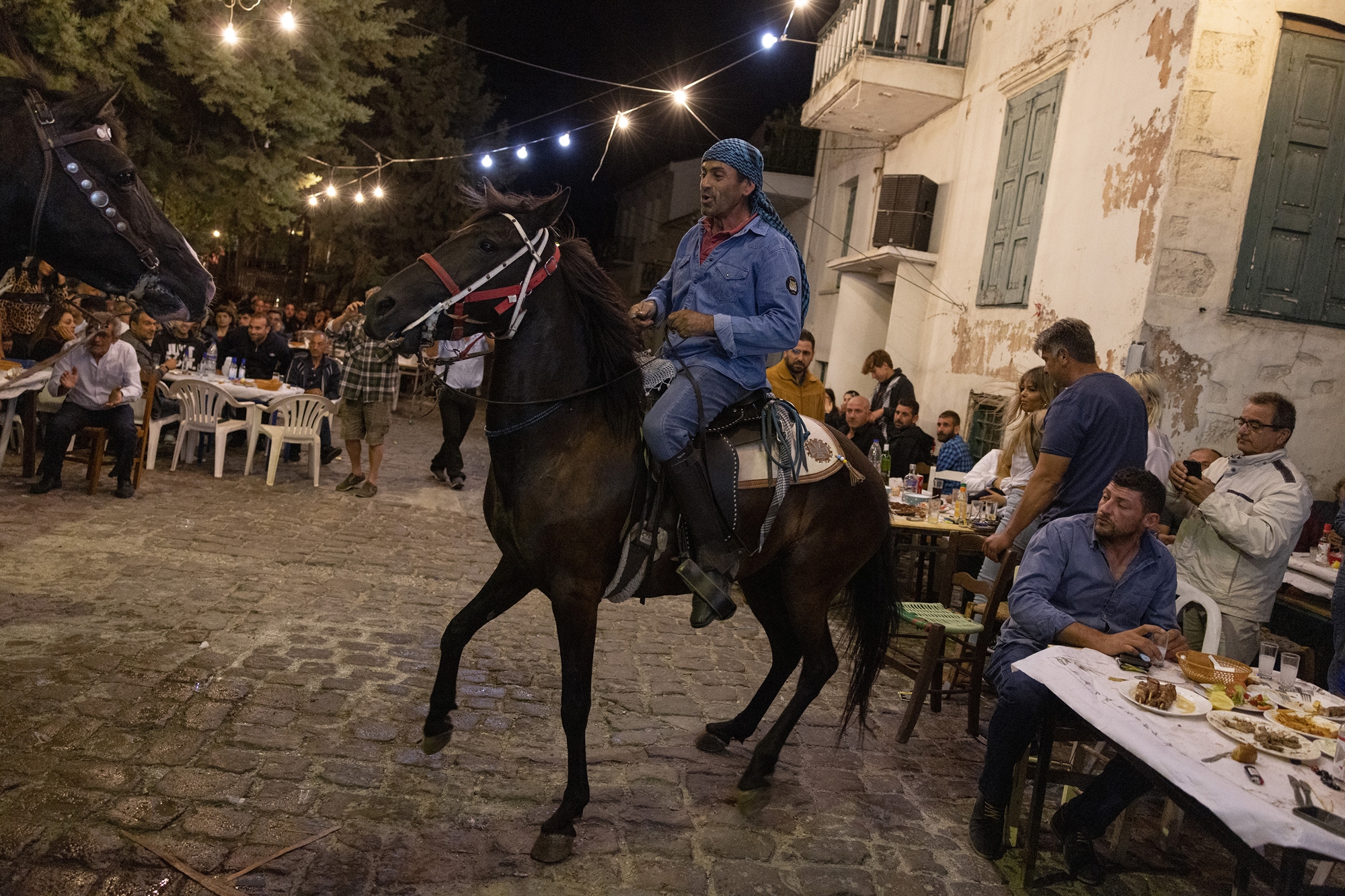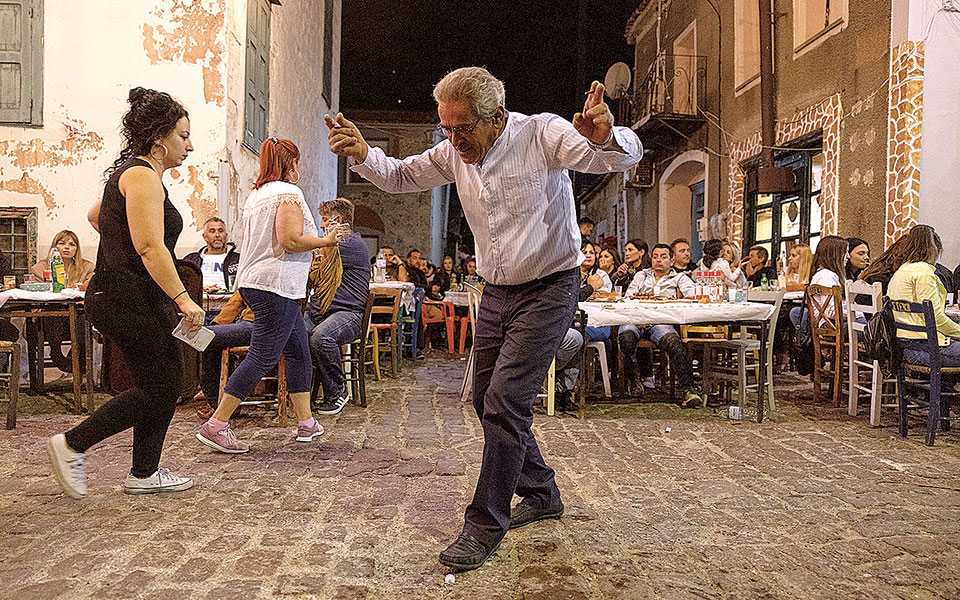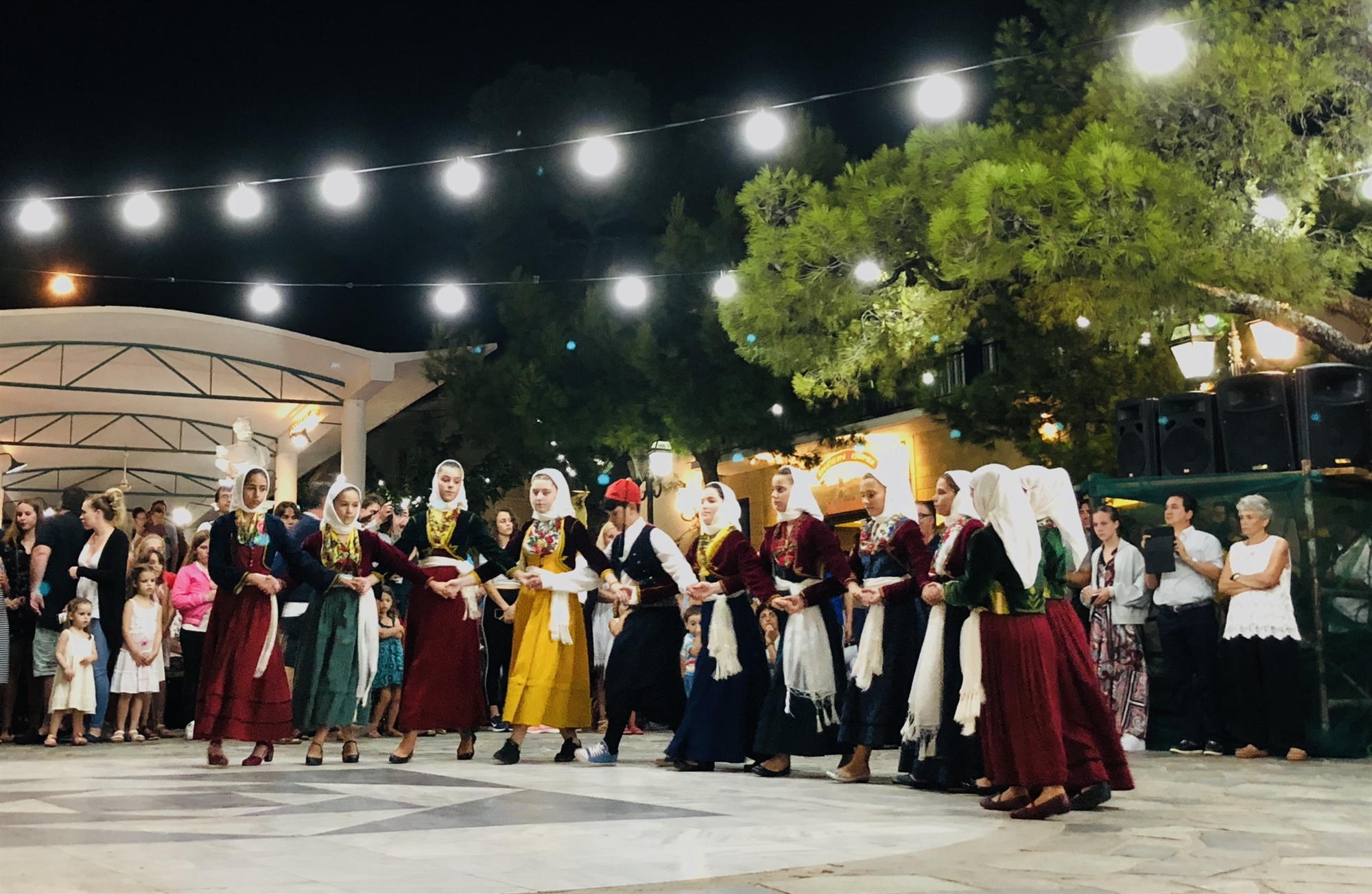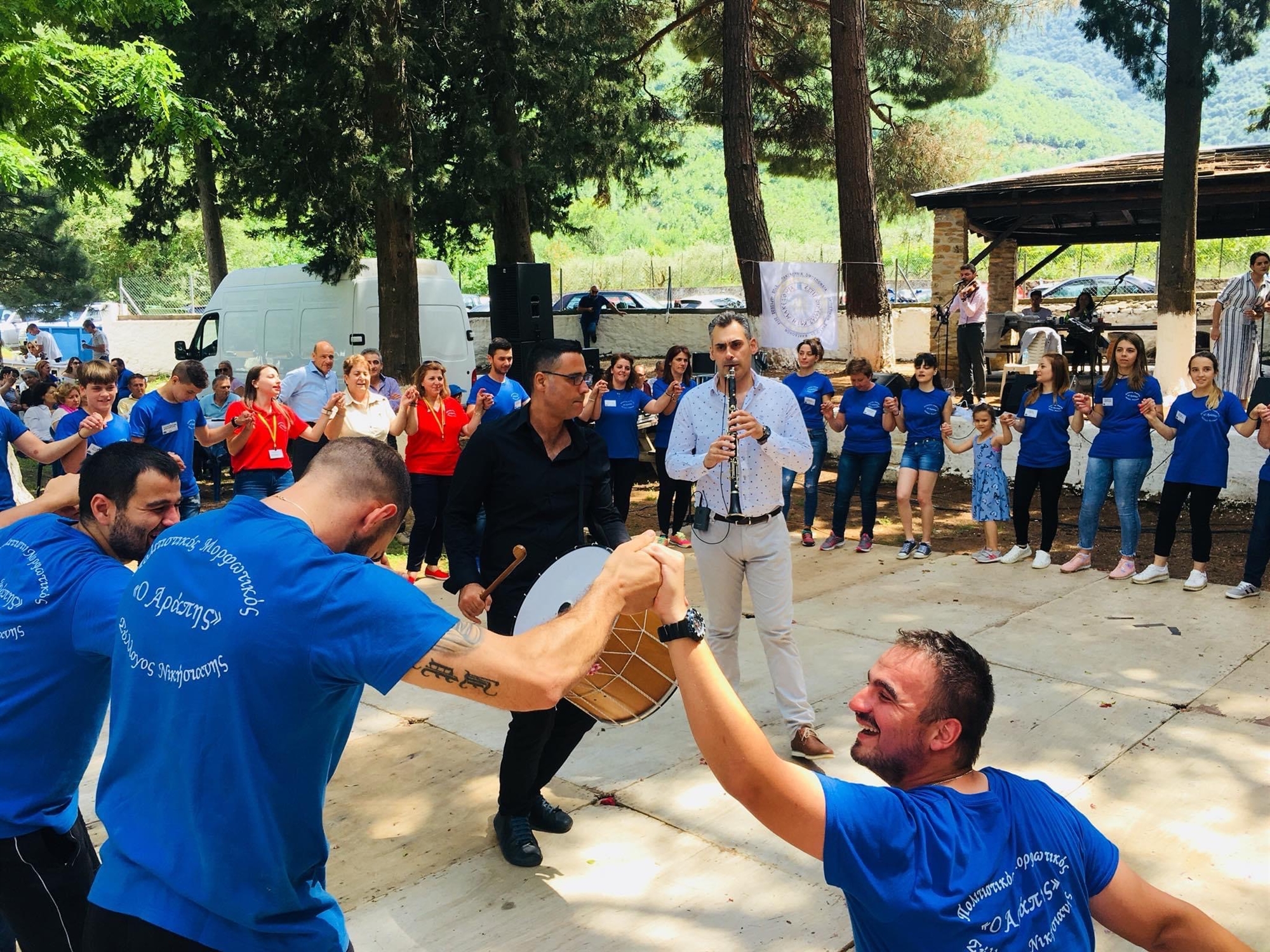
Masters of the traditional violin, clarinet and lyre they speak “K” for the first summer after two years of restrictive measures, when festivals are returning across Greece, quenching the world’s thirst for a folk extravaganza unlike anything else.
“There is great longing and thirst in the world”
Nicola Zois
As much as we like its creator, the pejorative phrase “for festivals” is unfair: in few social events, the community has as many opportunities for collective joy, as many opportunities for reunion, as in a festival – this is their significance, even today. For in the first summer when dancing and outdoor gatherings are allowed, the festivals of Greece—from Epirus to the Dodecanese and from Evros to Crete—even by empirical estimation, seem to be returning, quenching the thirst of a kind of ritual folk fun unlike anything else. .
“This is something that also reflects in our work, more than we expected. There is a lot of mobility in organizing festivals this year.” says Nikos Agoussis-Deucidis “K”., playing the clarinet in the traditional troupe “Ta bratimia”. The Thessaloniki-based troupe has recently been invited to festivals in Sokhos and Lamia, Ioannina and Volos, and these days they will be performing in Serra and Kilkis.
“The world,” continues Mr. Agousis-Deutzidis, “is in a mood to leave behind the hardships of the coronavirus and strengthen its ties with others to redefine itself in relation to society. The festival contributes to all this. It has to do with joy and especially with reunion – you know that at the village fair you will see people after a long time. Especially because of the pandemic, the need to be with them in a circle dance, in squares or in cafes, is more relevant in order to be happy and share it.”

A similar image is conveyed by a lute player from the other end of Greece. Nikos Stratakis, who, together with his brother, lyricist Giorgos Stratakis, has been serving the musical tradition of his special homeland since childhood: “In Crete, famous for its summer holidays,” Nikos emphasizes, “all groups have a lot of work this year. There is great longing and thirst in the world, as if he had come out of prison – that’s what we feel. It is something like an appointment to be with friends and relatives at the holidays with which the villages honor their saint. So wherever we go,” says Nikos Stratakis, who was scheduled to perform with his brother on August 15 at a big festival in Koxar, Rethymno, “we are greeted with a beautiful feast.”
Besides the fact that these feasts are beautiful, are they also thought out? “There are old people sitting at the far tables,” Nikos Stratakis replies. “And some others, younger ones, come in masks. However, there is a lot of love in the world. And it’s nice to see them hugging and singing together.”
“People are determined to leave the difficulties associated with the coronavirus and strengthen ties with others,” says Nikos Agousis-Doitsidis.
OUR Stratis Pasopoulos, who sings and plays as part of the troupe “Euritiki Zygia”, recently participated with his troupe in the festival of the Prophet Elijah in Kastanies Evros, in another in Diomedia Xanthi, while Gefiroudi Serres, the Wine Festival in Nea Agialos, Korinos Pierias and others. At all the festivals he has been to so far, the pandemic seems to have affected some people’s behavior in different ways, but has not set the tone. “Especially at the beginning of summer, some people came with great thirst, believing that they would come and dance and get dirty,” notes Mr. Pasopoulos. “On the other hand, people who pay attention are everywhere. However, due to such attention, we did not see a single lukewarm holiday.”
Music tourism
After all, it seems that foreign visitors to festivals are also looking for this “Dionysian metexis”. “There are some tourist musicians coming from Europe who want to experience the kind of celebration they don’t find in their own country,” comments Nikos Agoussis-Deucidis. “Recently a Belgian musician traveled all over the Balkans for a month and also passed through Greece to see how people are having fun, how people behave at festivals. If we include some workshops run by local musicians for foreigners, I think we are now talking about something like “music tourism”.

But what is the repertoire of today’s Greek festivals? “Depending on the region and the world,” explains Nikos Agousis-Deutzidis. “The Epirote has no such experience as the Thracian, the islander. Some Athenians, of course, who come to their villages, now knowing other music, may also ask for Cretan, Icarian, Pontic, although they are not from there. For some reason, festivals have become more “multicultural”.
And if the locals crave revelry and feasting, if foreigners are looking for the Dionysian metexus, then what did the musicians themselves lack? “Besides my group, my company, apart from the whole ritual of the festival, I missed the interaction with the dancer,” concludes Stratis Pasopoulos. “Last year and the year before last, it was awkward to play dance numbers like Zonaradikos, and where once many people got up from the tables, suddenly no one was dancing.”
Violinists are waiting for the holiday “like ascanites”
Dimitris Karaiskou
The violin opens wild paths above the island rhythm. His phrases seem to travel through the air, dancing around blue domes and white bell towers, over festive flags, lanterns, a village square teeming with people. Together with the lute, they enter into intoxicating tracks, and the crowd is drawn into the Dionysian dance. Young and old, islanders and foreigners, all become one in the island’s festival, summer evening and Cycladic landscape.
And yet the violins and lutes were silent for almost two years. The pandemic has snuffed out their flames and indefinitely suspended the carefree enjoyment of dancing, socializing and living. That’s why it seems so refreshing that we’re seeing their relaunch this summer.

OUR George Pittas, creator of the “Festivals in the Aegean” album and immersed in Aegean culture, confirms that festivals have resumed and that “undoubtedly people have started to explode this summer”. He succinctly defines the Aegean festivals as “the highlight of islanders’ social life” as “they represent a unique concentration of life and culture that you rarely find in other events.”
Another writer and researcher of the local history of the Aegean, Kostas Danousis, informs us that “the holidays of the Christian era are a continuation of the rural holidays established by the ancient Greek folk religion” and that they have always been a way of communication. for the villagers, as they arranged a holiday where everyone found an opportunity to have fun.
A feast, which, of course, was always started by violinist musicians, who, according to ancient evidence, stood aside so that the feast could begin, “like askanites”, guards, that is, like kites. They were so eager to start the party, to make people dance.
From small impromptu parties to big festivals, there have always been musicians with their own scales who have ignited the celebration. Zigii (pairs of instruments), which usually include a violin and a lute, or a cymbal and a tambourine. Tsambuns, Giorgos Pittas points out where they were going to disappear, have become popular again in recent years, so much so that locals have begun digging them out of their warehouses.

Indeed, what kind of holidays are there without musicians and their soulful playing? Scales, musicians, this is the pulse, the soul, the “saints of the holidays.” One of them is Nikos Fakaros, a violinist who is called “the first violin of Ikaria”, one who contributed to the popularization of the musical traditions and festivals of the island. From him we learn that, indeed, the resumption of festivals is a fact, and that the big festivals of Ikaria, where “everyone becomes a family”, again expect a large number of visitors this year. Today, the fifteenth of August, in Lagada, where perhaps the biggest festival of the Aegean takes place, it will almost certainly be repeated in the summer of 2019, when 7,000 visitors will gather. “Our festivals are non-profit, the income supports the activities of local clubs,” he adds.
“We are looking to return to our pre-pandemic lives, and the resurgence of holiday events this summer is a sign of that. We are optimistic, overly, dangerously optimistic, because the danger is not over yet. But society is opening up again, it is not afraid,” tells us about Kostas Danusis.
There is no doubt that during these holidays in the summer in the Aegean Sea, we all strive to “quench our thirst with the first springs,” as the poet Nikos-Alexis Aslanoglu once so touchingly wrote. In the authentic festivals of the islands, where, according to Giorgos Pittas, “the approach to the authenticity of the life of the places dominates, which is the best antidote to the mass, bad taste and urbanization of the holidays.”
Source: Kathimerini
James Springer is a renowned author and opinion writer, known for his bold and thought-provoking articles on a wide range of topics. He currently works as a writer at 247 news reel, where he uses his unique voice and sharp wit to offer fresh perspectives on current events. His articles are widely read and shared and has earned him a reputation as a talented and insightful writer.